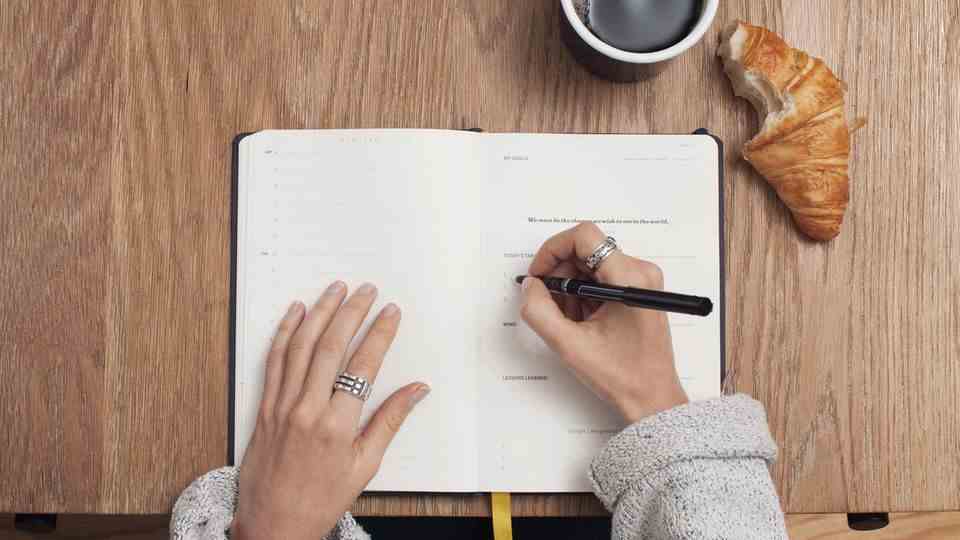The US actor Jonah Hill suffers from recurring panic attacks – and therefore no longer wants to appear in public. Hill shares the fate of around 12 million people in Germany. But what helps when panic overtakes you?
“Suddenly you have a racing heart, you get bad breath and you have pressure on your chest, your hands are shaking, it’s cold and hot at the same time, your limbs are numb and you get gasping. At that moment you think you’re about to die. And Then the next moment everything is fine again.” That’s what it sounds like when the influencer Kiki* talks to the stardescribes what a panic attack feels like.
Jonah Hill, Selena Gomez and Ryan Reynolds – they all suffer from panic attacks in a similar way to 24-year-old Kiki from Hamburg. Overall, one in five adults will experience at least one panic attack in their lifetime, usually starting in their 20s. Each and every one of you will likely experience it in your own unique way, because panic affects each of us differently.
Recognizing Panic Attacks: The Most Common Symptoms
The most common physical symptoms of a panic attack include tachycardia, palpitations, shortness of breath through to shortness of breath or a feeling of suffocation, chest pain, chest tightness, hot flushes, chills, dizziness, nausea, and tremors.
On a psychological level, a panic attack is often associated with a feeling of loss of control. Those affected are so overwhelmed by the physical reaction that they mentally become more and more afraid. Due to the disproportionate and mostly unforeseen fear reaction, some people also feel strange or strange, and the fear of death often plays a role.
From zero to one hundred: Panic attacks often come out of nowhere. This can happen when we go shopping at the weekend, when we go to the cinema with friends or just before we make our way down the aisle. But that’s also what makes it so unpredictable.
Because the only common denominator is insecurity, which we don’t even have to be aware of. And an average duration of ten to thirty minutes. Sometimes certain places, sounds or situations trigger old feelings in our subconscious, which then lead to panic.
Once our fear has picked up speed, it is almost impossible to stop it. Our body releases the stress hormone adrenaline, the heartbeat accelerates, the muscles tense – which causes pressure in the chest. And then the mind starts to work.
Because our body fools us into believing a dangerous situation, our brain looks for reasons for it. And as the saying goes: who seeks will find. And so the vicious circle of fear of fear is born.
Panic attack: cause and risk factors
In principle, such a panic attack can affect anyone. And yet there are risk factors that favor the fear spiral. For example, it is more likely to panic spontaneously if we have been stressed for a long time, suffer from unresolved conflicts or have ignored warning signals such as inner restlessness, sleep disorders or cardiac arrhythmias.
If it is not just a single panic attack, but you suffer from it regularly, then it is a so-called panic disorder. This affects about two percent of Germans. Anxiety disorders in general are considered the most common mental illness – in Germany around twelve million people suffer from a corresponding clinical picture.
There are several risk factors for panic disorder. It is assumed, for example, that people with stressful childhood experiences and stressful phases of life are more likely to develop a corresponding disease.
Apart from that, factors such as genetic predisposition and hormonal imbalance also play a role in the development of anxiety disorders.
Recent medical studies also indicate that people with panic disorder are particularly sensitive about their bodies. This means that they perceive their heartbeat more intensely and therefore react more quickly when it changes. The result: They interpret the increased pulse as a sign of a problem in the body and react to it with fear – and the vicious circle takes its course.
Suddenly afraid of death – and now?
Let’s summarize: Panic attacks cause a high level of suffering – usually only for a comparatively short time, but sometimes for a long time. Anyone who has ever panicked usually tends to avoid such situations or places in the future. This is exactly the wrong way to deal with panic attacks. To make sure you’re prepared just in case, we’ve got a few more sensible coping strategies for you.
The first rule is also the most difficult: stay calm. Even if your whole body is on alert and would like to flee, you shouldn’t do that. Better: take a deep breath and try to be clear: my life is not in danger, everything is fine. This does not mean that you should suppress the panic. On the contrary: Allow the fear – in the knowledge that it will pass again.
The Hamburg influencer Kiki has discovered another strategy for dealing with her panic attacks: “I always get help when I have a panic attack because I can’t manage it on my own. Then my friend from work comes or a good one girlfriend over.” So don’t go through the panic alone, but dare to ask for support.
Emergency kit: Gamechanger, not only for panic attacks
Once the worst is over, exercise and distraction can help you get through the aftermath of the panic attack. Sport is also ideal for prevention – because it allows your body to get used to an increased heart rate and does not panic as quickly due to a faster heartbeat. And if absolutely nothing helps: call an ambulance – sometimes the specialist staff is able to defuse the situation over the phone.
If you suffer from panic attacks on a regular basis, a healthy and conscious lifestyle can help. Yes, that also means avoiding substances such as alcohol, nicotine and caffeine as much as possible – because they can increase anxiety. You should also eat healthily and get enough sleep. Psychotherapy can also help to deal with the anxiety symptoms.
A real game changer: the emergency kit. This method actually comes from behavioral therapy for people with depression or borderline, but it can also help with panic attacks. Pack a small box or bag with items that trigger something positive in you.
This can be a holiday photo, a scented book or a specific song. The main thing is that it makes you happy. If the panic then rises, you can fall back on this box and literally “hold on” to the beautiful things in your life.


